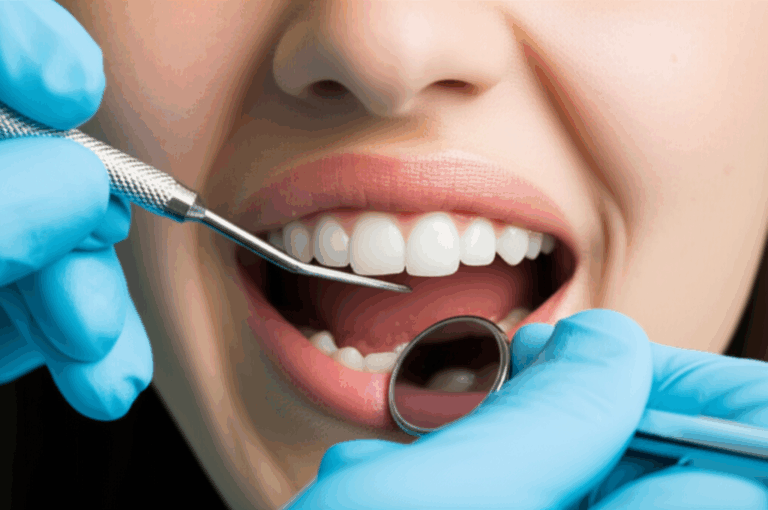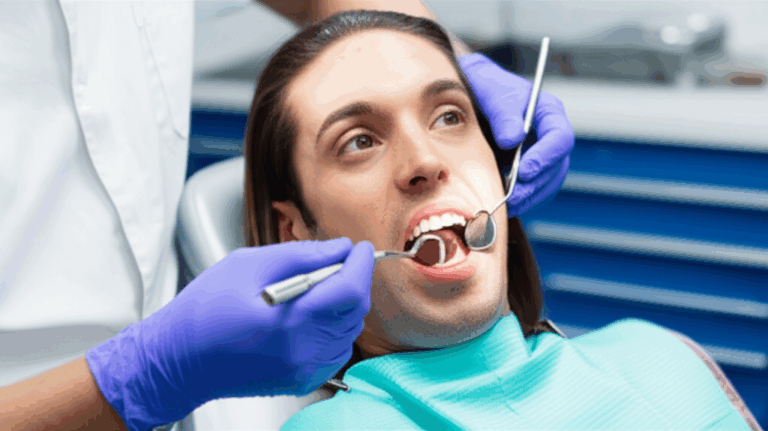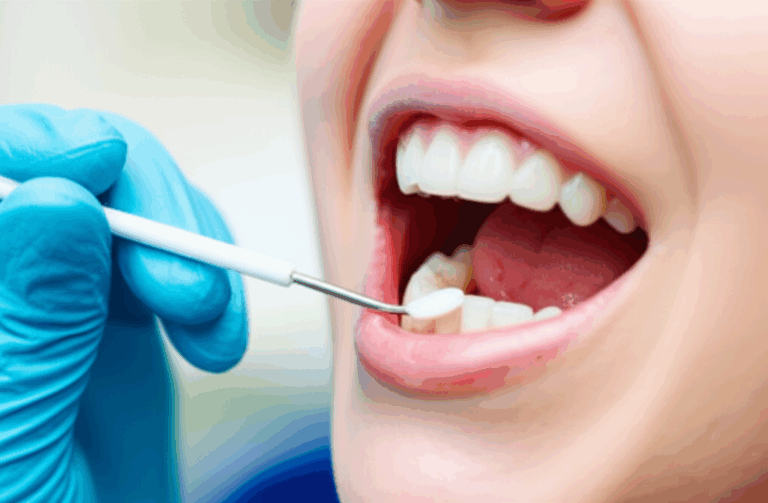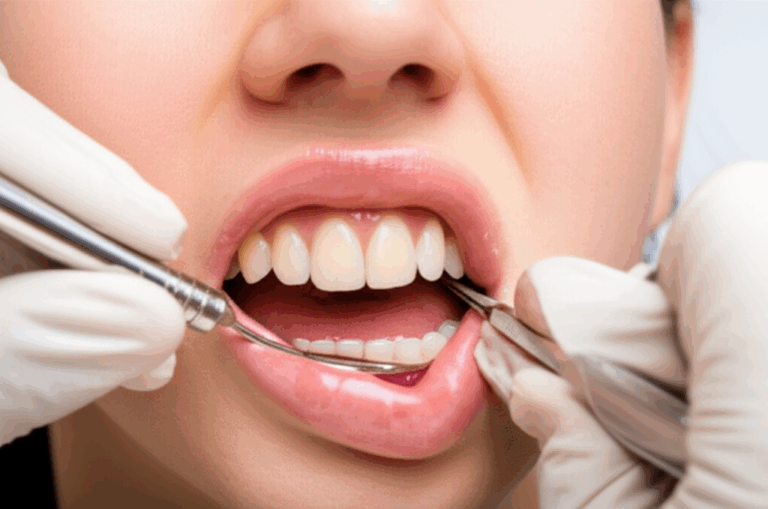
Can a Dentist Become a Maxillofacial Surgeon? The Definitive Guide to the OMFS Path
Have you ever wondered if a regular dentist could ever become a surgeon who operates on jaws, faces, and more? This article has the answer—and it’s an interesting story. You’ll find out how a dentist can change their career to become an oral and maxillofacial surgeon (OMFS). Not only will I show you each step, but I’ll also show the real-life problems and good points. If you’re thinking about your own dental future or just curious, you’ll find what you need here! Let’s get started and see what it takes.
Table of Contents
What is an Oral and Maxillofacial Surgeon?
First, let’s explain something simple. What does “oral and maxillofacial surgeon” mean?
An oral and maxillofacial surgeon, or OMFS, is a special kind of doctor. This surgeon treats problems and does surgeries on the mouth, jaws, face, and sometimes the neck. Some people think of them as super-dentists, but the truth is, they do a lot more than that.
What Work Do OMFS Do?
Here’s what these surgeons can do:
- Take out wisdom teeth and fix broken jaws
- Put in dental implants for people who lost teeth
- Fix TMJ problems (that’s your jaw joint)
- Fix faces hurt by accidents
- Treat cancers of the mouth or face
- Fix cleft lips and palates
They work in hospitals and special surgery buildings, not just in small dental offices.
Why it matters: If you want to make a big difference in people’s lives—like helping someone smile again after an accident—this might be the job for you.
Can a Dentist Really Become an OMFS?
You may wonder, Can a normal dentist really turn into an oral and maxillofacial surgeon?
The answer is YES! But the road isn’t short or easy. Here’s the thing: many dentists want to do more advanced surgeries, but they just don’t have the training. It can feel like running into a wall in your job.
If you’re ready to work hard, though, you can open the door to this higher level of care. Dentists who want something more don’t have to stay stuck. But you’ll need special education, training, and a lot of commitment.
How Long Does It Take to Become a Maxillofacial Surgeon?
Let’s look at the numbers. People always want to know, “How long will this take?” Here’s a table to show the path:
| Step | Years Needed | Total Years So Far |
|---|---|---|
| College (pre-dental) | 4 | 4 |
| Dental School (DDS or DMD) | 4 | 8 |
| OMFS Residency | 4-6 | 12-14 |
| Medical School (optional)* | Usually 2-4 | 14-18 |
*Some OMFS programs include medical school during the residency.
That’s a long path. But in the end, you’ll have skills that are rare, and a job that’s respected. Most OMFS experts do 8-10 years of training after high school. That means you spend a lot of time and money.
What Education Does a Future OMFS Need?
I’ve seen this path close up, so let me show you each step.
1. Finish College First
You need to go to college and pick classes in science, like biology or chemistry. You’ll need good grades and to do well on the Dental Admissions Test (DAT).
2. Go to Dental School
After college, you need a DDS (Doctor of Dental Surgery) or DMD (Doctor of Dental Medicine) degree. Dental school is hard. You’ll spend a lot of time in class and in clinics learning all about teeth and gums.
3. Apply for OMFS Residency
This is where it gets hard. You need:
- High dental school grades (especially for surgery)
- Great DAT scores or, sometimes, Medical College Admission Test (MCAT) scores
- Good letters of recommendation
- A personal essay that shows who you are
- Some shadowing or extra time working with real oral surgeons
Many people don’t get in the first time. It’s very competitive.
What Does OMFS Training Involve?
If you get in, the OMFS residency is the next big thing. Get ready for some of the hardest—and most exciting—years for your career!
What Happens in OMFS Residency?
You’ll learn by doing real work, like:
- Doing surgeries with help from experienced doctors
- Learning how to give anesthesia to keep people safe
- Working in hospital teams with other medical staff
- Managing tough emergency cases (like car crashes)
Some programs also make you take medical school classes and work in hospital areas like internal medicine and general surgery. You’ll work long days—and nights. It’s a big challenge.
But here’s the bright side: You learn real confidence and get skills so you can handle the most difficult dental and face problems. At the end, you’re not just a dentist anymore. You’re a real surgeon.
Why is an OMFS Residency So Competitive?
Here’s the truth: dental students everywhere want this job. Why? Because oral and maxillofacial surgery pays very well and gets a lot of respect. There are only about 250–300 OMFS training spots in the U.S. each year, but many more people want one.
Why is it So Hard to Get In?
- Good programs want the best grades, test scores, and experience
- Applicants spend years improving their resumes
- Some programs are dual-degree, meaning you finish with both a dental and a medical degree
So, this isn’t for everyone. It’s hard, very busy, and expensive. But because it’s tough, you work with really smart and hard-working people.
How is an OMFS Different from a Dentist?
Let’s see the differences in a simple table:
| General Dentist | Oral & Maxillofacial Surgeon |
|---|---|
| Dental checkups, fillings | Jaw surgery, facial repairs |
| Teeth cleanings | Fixing broken face bones |
| Simple extractions | Taking out tumors, treating cancers |
| Root canals, crowns | Putting in tricky dental implants |
| Works in an office | Works in hospitals, surgery centers |
In short: Dentists help with teeth and gums each day. OMFS surgeons can do much more. They handle big and serious things that normal dentists can’t fix.
Is Becoming an OMFS Worth the Investment?
Now the big question: Is all this work really worth it?
The Problem
- You spend a lot of years in extra school
- You build up student debt (often over $500,000)
- Residency means lots of late nights and stress
- Family and fun times might be put aside during training
The Good Part
- You can make $300,000–$500,000+ a year (sometimes more)
- You do surgeries that can change lives
- Surgeons are always needed—people will always need their help
- You get strong respect from both doctors and dentists
My view: If you like doing surgery, want to help people in special ways, and don’t mind hard work, it’s worth every bit.
What Can You Do with OMFS Training?
After all your training, what’s possible? Lots of things!
- Start your own private practice, doing dental implants, jaw surgery, and more
- Work in a hospital, treating injuries and working with doctor teams
- Go to a university to teach or help with research
- Serve in the military as a surgeon for injuries
- Join groups that help children with cleft lips and palates
Some OMFS experts work with digital dental labs or create new technology to fix faces, using the newest digital tools.
How Can a Dental Lab Help Your Journey?
Let’s talk real help. Whether you’re already a dentist or just starting, your work needs to be the best. That’s where using a trusted dental lab helps.
A top china dental lab, for example, will give you the best crowns, bridges, and implants for your work. If you move into surgery, a good implant dental laboratory will be your partner—helping make exact dental implants and new teeth, using digital tools to make things fit right.
Dental labs can also help you with:
- dental ceramics lab for natural-looking teeth and crowns
- Special cases (like custom guards or retainers)
- The newest dental materials and 3D printers
Working with a great dental lab means you give your patients the very best—whether you’re doing regular dental work or tricky OMFS work. That’s why every good surgeon or dentist counts on a lab they trust.
FAQ
Q: Can any dentist become an oral and maxillofacial surgeon?
A: Any dentist with a DDS or DMD can try for OMFS training, but you need really good grades and extra training.
Q: Will I need to do medical school?
A: Many OMFS programs mix dental and medical training. Some ask you to get an MD, too. Others just focus on dental parts—but having an MD often means you can do more and work in more places.
Q: What’s the difference between an OMFS and a regular dentist?
A: An OMFS does tough surgery on jaws, faces, and mouths. Dentists mostly do daily tooth care like fillings and cleaning.
Q: How do salaries compare?
A: Regular dentists usually make $160,000–$200,000 a year. OMFS specialists can make $300,000–$500,000 or more, depending on where and what they do.
Q: Do OMFS specialists work only in hospitals?
A: No, they can work in private offices, schools, hospitals, or even in labs and research.
Key Points to Remember
- Yes, a dentist can become a maxillofacial surgeon—but it takes extra years of school, lots of work, and a strong drive.
- OMFS surgeons do bigger surgeries and treat more serious cases, making a big difference for people.
- It takes 8–10 years or more after college and needs high grades and good test scores.
- Training is tough, but the pay and respect are high, and you can help in ways other jobs can’t.
- Using a top dental lab gives both dentists and surgeons the tools they need for great work.
- Not everyone will want this path, but if you dream big and want more than regular dentistry, OMFS could be right for you.
If you want to dream big in your dental career, start planning now. Make friends with experts, learn about special training, and don’t be afraid to go for what you want. With dedication, hard work, and the right help, you can be the one making a difference—one smile (or surgery) at a time.








